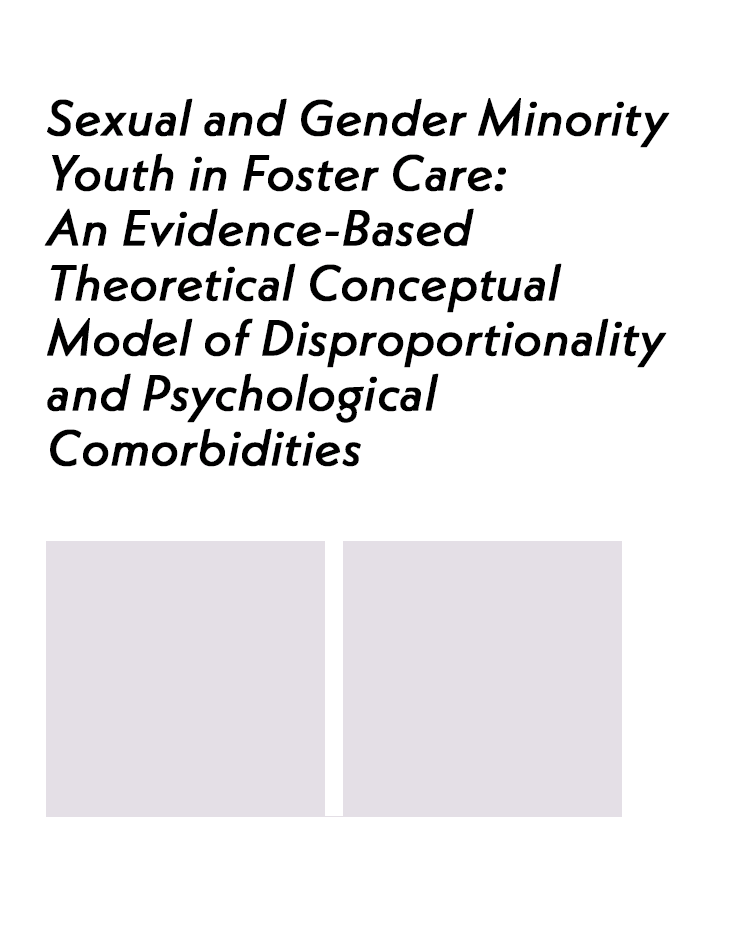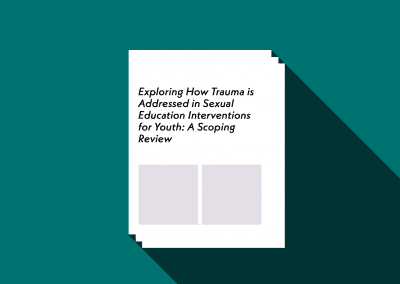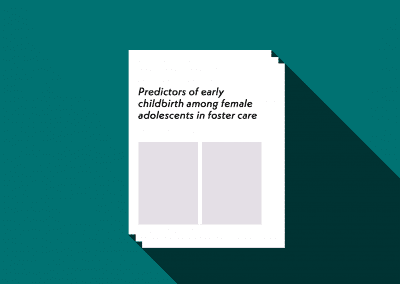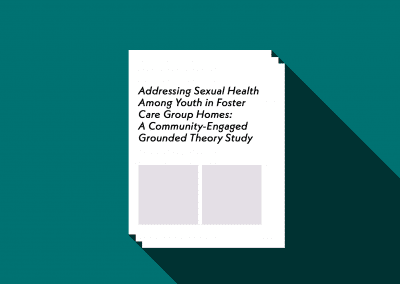
ReSHAPING
Sexual and Gender Minority Youth in Foster Care: An Evidence-Based Theoretical Conceptual Model of Disproportionality and Psychological Comorbidities
May 2021
Dana M. Price, Meagan Ray-Nivak, Braveheart Gillani, Emily Peterson
Suggested Citation
Prince. D.M., Ray-Novak, M., Gillani, B., & E. Peterson. (2021). Sexual and Gender Minority Youth in Foster Care: A Theoretical Conceptual Model of Disproportionality and Psychological Comorbidities. Trauma, Violence and Abuse. DOI: 10.1177/15248380211013129
Abstract
Sexual and gender minority youth (SGMY) are overrepresented in the foster care system and experience greater foster-care related stressors than their non-SGM peers. These factors may further elevate their risk of anxiety/depressive, post-traumatic stress disorder, self-harm, and suicidality. The system currently produces unequal and disproportionate adverse mental health outcomes for SGMY and needs points of intervention to disrupt this status quo. This article provides an empirically grounded conceptual–theoretical model of disproportionate representation and burden of psychological comorbidities experienced by SGMY in the foster care system. We apply findings from an integrated literature review of empirical research on factors related to overrepresentation and mental health burden among SGMY to minority stress theory to explicate how and why the foster care system exacerbates mental health comorbidities for SGMY. Searches were conducted in June 2020 in PubMed using MeSH terms and title/abstract terms for foster care, sexual or gender minorities, and psychological comorbidities. Inclusion criteria are studies conducted in the United States, published in English, focused on mental illness, and published between June 2010 and 2020. Developmental/intellectual and eating disorders were excluded. The initial search returned 490 results. After applying inclusion criteria, 229 results remained and are utilized to build our conceptual–theoretical model. We assert that the phenomenon of disproportionate psychological comorbidities for SGMY in foster care is best represented as a complex and dynamic system with multiple feedback loops. Extant empirical and theoretical literature identifies three critical areas for intervention: family acceptance, community belonging and queer chosen/constructed family, and affirming and nondiscriminatory child welfare policy.





